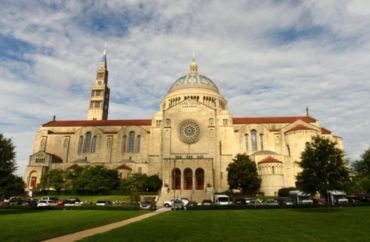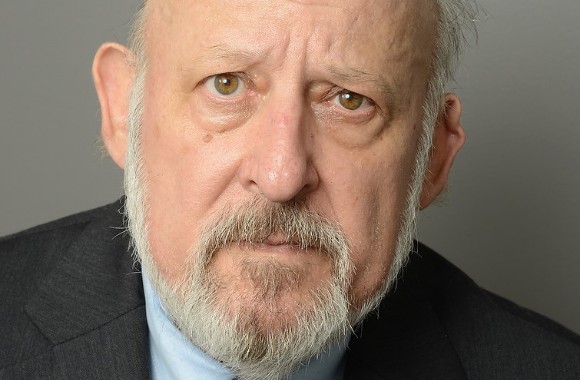
Repeatedly violated its written promises about freedom of expression
When we asked Catholic University of America last month why it suspended an adjunct professor for his conservative tweets, the administration refused to comment on the professor’s claims.
Now it’s freezing out the Foundation for Individual Rights in Education as well.
It’s been three weeks since the civil liberties group wrote to President John Garvey warning that its treatment of John Tieso constitutes breach of contract, FIRE said in a blog post Monday. “Given the urgent nature of this matter,” it had asked for a request within three days.
“This response to extramural political expression, however offensive it may be to its critics, is a marked departure from the university’s express commitments to freedom of expression,” Adam Steinbaugh, director of FIRE’s Individual Rights Program, wrote in the letter.
Tieso got in trouble when a student from a different university complained to CUA about his supposedly racist tweets, including jabs at former President Barack Obama and Democratic Sen. Kamala Harris.
Less than a week later – and after he removed his Twitter account, allegedly at the direction of his boss, Busch School of Business Dean Andrew Abela – the university suspended Tieso.
MORE: Tieso removes Twitter account after dean asks him about complaint
 Steinbaugh reminded Garvey (left) of his own words on the “principles attendant with the freedoms of expression and inquiry in higher education” in Catholic magazine Commonweal in 2017.
Steinbaugh reminded Garvey (left) of his own words on the “principles attendant with the freedoms of expression and inquiry in higher education” in Catholic magazine Commonweal in 2017.
And the university has voluntarily promised, several places in writing, to not just tolerate freedom of expression in the campus community, but to defend and foster it. Despite its Catholic identity, CUA promises not to squelch even discussions that offend Catholics: “freedom of inquiry, open discussion and unrestricted exchange of ideas [are] essential to the pursuit of knowledge.”
Its accreditation also requires the university to demonstrate its commitment to academic freedom and freedom of expression, Steinbaugh wrote. He noted the Wisconsin Supreme Court ruled against another private Catholic university, Marquette, for a similar punishment of a faculty member in violation of his contractual rights.
Echoing The Fix (and contradicting WUSA9, which still has not corrected its false report about Tieso), Steinbaugh noted that the professor’s Twitter account did not violate CUA’s social media policy because it never identified his affiliation with CUA. The policy itself doesn’t require faculty to follow it but simply asks them to follow it, Steinbaugh adds:
No reasonable reader would believe that Tieso’s Twitter account, brimful of charged political rhetoric, purported to represent the university’s official positions, or that Tieso is employed to present his views on Twitter. Indeed, an expansive search of Twitter reveals that only one person had, until this month, learned that he was associated with the university at all, and others indicated uncertainty about where he taught.
The university itself has conceded no one actually filed a formal complaint about Tieso (below) – his punishment is entirely separate from any allegation of “discriminatory conduct” or even “offensive expression directed at any member of the university community,” Steinbaugh reminds Garvey.
MORE: CUA suspends award-winning prof for criticizing Obama, Harris

President’s own words keep undermining university’s actions
As if everything before this wasn’t enough, Tieso’s tweets are “political expression on matters of public concern,” giving them the strongest protection under the First Amendment.
If the Supreme Court won’t allow the censorship of anti-gay activists picketing a military funeral with “Thank God for dead soldiers” signs, Steinbaugh asks, what possible rationale could CUA have for punishing Tieso over his criticism – however “vituperative, abusive, and inexact” (in the language of another court ruling) – of a former president and sitting senator?
Universities that promise academic freedom to faculty are not free even to launch investigations into their speech under the pretext of probing allegedly “unbecoming” conduct, the FIRE letter continues, citing a 2nd U.S. Circuit Court of Appeals ruling on the “implicit threat of discipline” and the “resulting chilling effect” from speech-related investigations.
Garvey should read his words less than three years ago, Steinbaugh writes, when the president distanced the university from its in-house seminary over the latter’s decision to disinvite a pro-LGBT Catholic priest:
The campaigns by various groups to paint Fr. [James] Martin’s talk as controversial reflect the same pressure being applied by the left for universities to withdraw speaker invitations[.] Universities and their related entities should be places for the free, civil exchange of ideas. Our culture is increasingly hostile to this idea.
MORE: Marquette got slapped down in court for doing same thing to conservative prof
The university must reinstate Tieso, drop any investigation, treat him the same as any other tweeting faculty member, and “reassure him that his current and future relationship with the university will not be impaired on the basis of past or future political expression,” the letter concludes.
In Monday’s blog post, Steinbaugh unfavorably contrasts CUA with Rutgers University, which reversed its punishment of a professor for an anti-white Facebook post after FIRE called it out.
By refusing to even discuss the legal issues with FIRE, the university has signaled to students and faculty that its “numerous written commitments to free expression are mere lip service.”
As if students didn’t need another reason to consider taking a year off college, those thinking of attending Catholic “should think again.”
MORE: Prof who wrote about killing evangelicals awarded $25K over dismissal
IMAGES: Bumble Dee/Shutterstock, Catholic University of America, John V Tieso/Facebook
Like The College Fix on Facebook / Follow us on Twitter







Please join the conversation about our stories on Facebook, Twitter, Instagram, Reddit, MeWe, Rumble, Gab, Minds and Gettr.